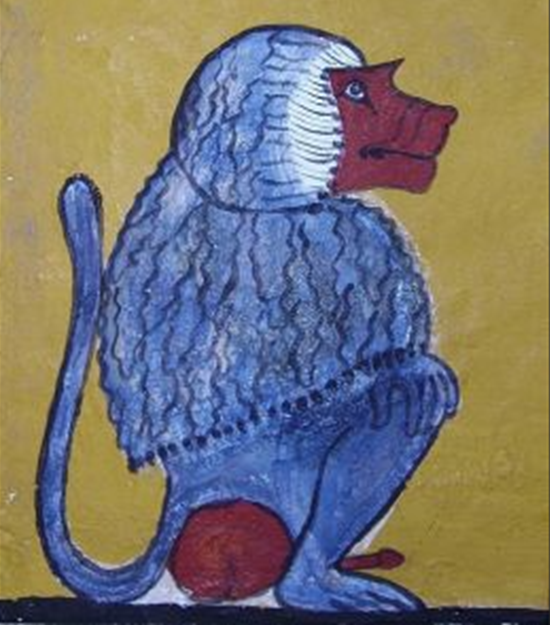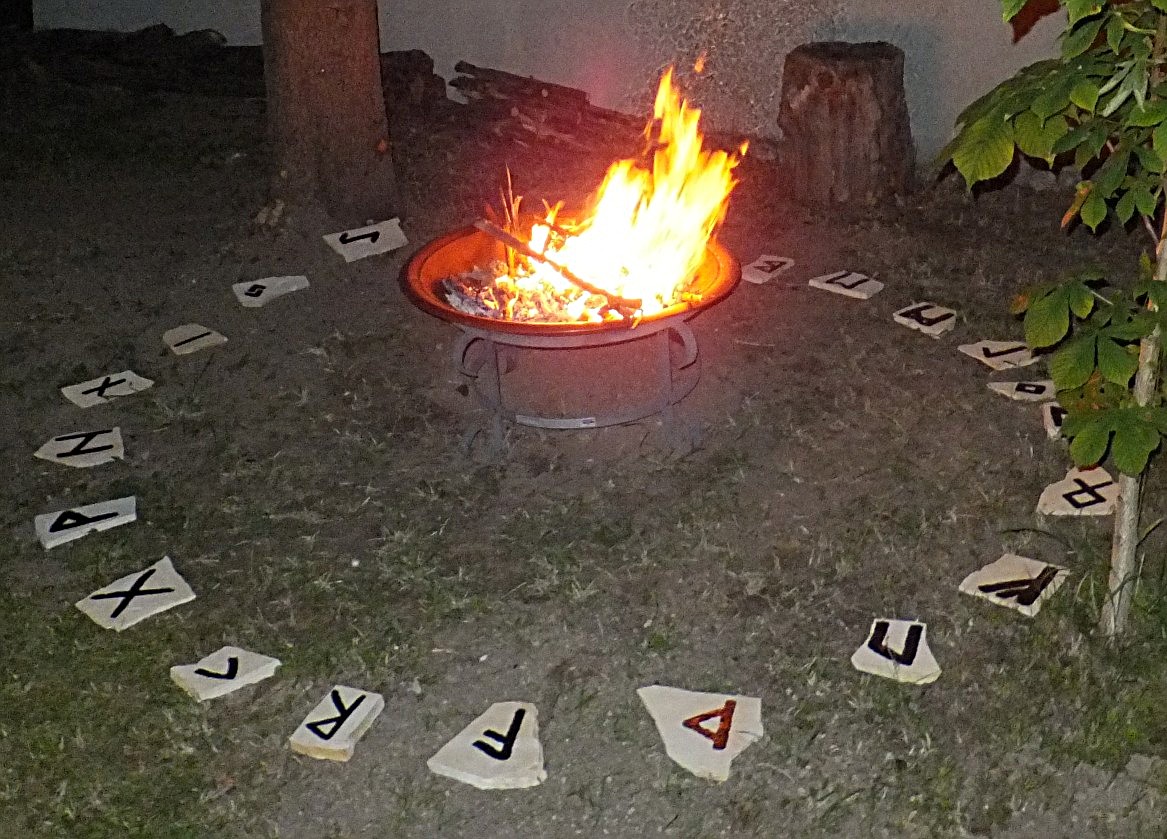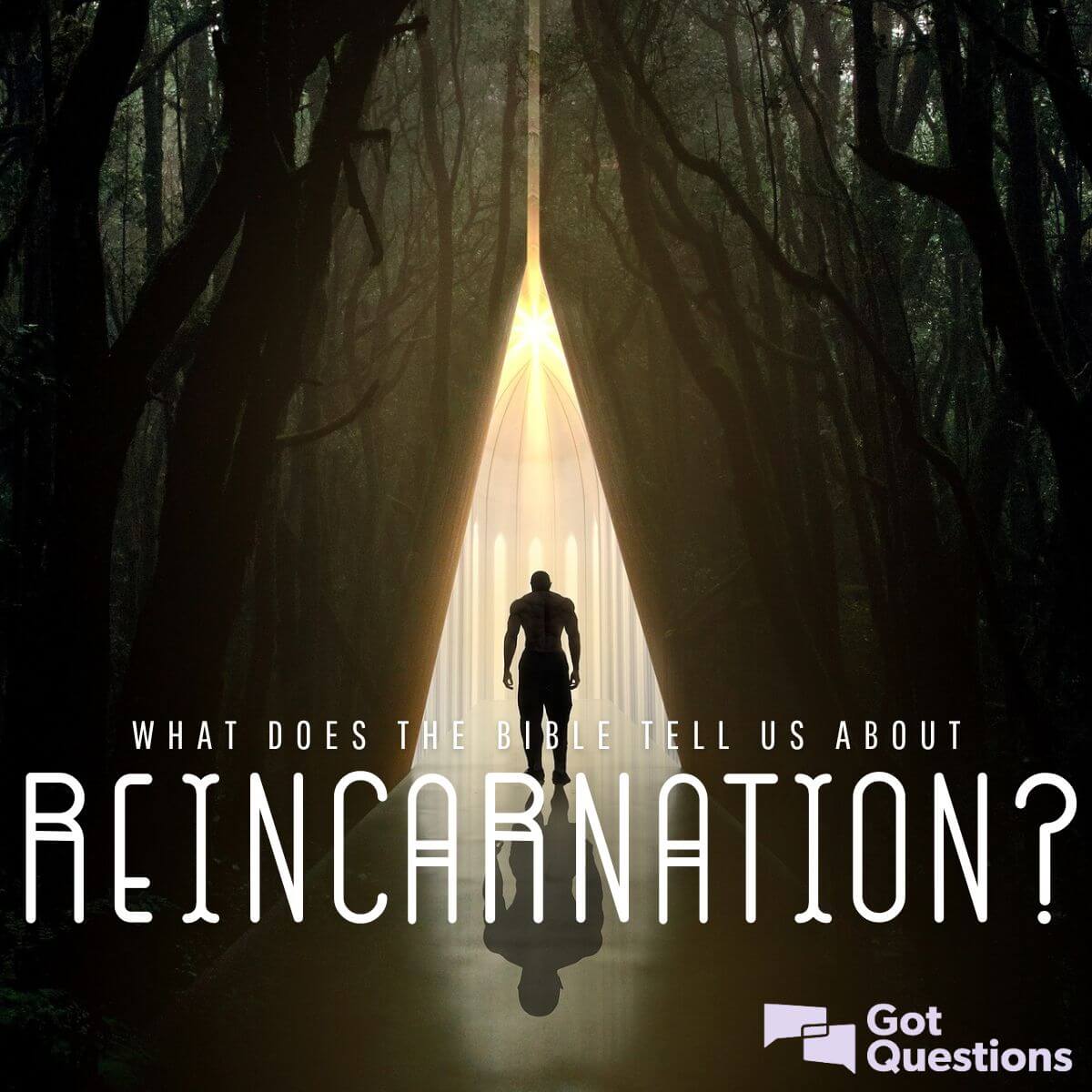Yokefellow
Active Member
Christians are told that the God of the Christian Bible either torments and burns the Unsaved for infinity, or completely annihilates them in a place called the Lake of Fire. Critics are quick to point out that this is a glaring contradiction to the 'God of Love' that the Bible advocates...
1 John 4:16
"And we have known and believed the love that God hath to us. God is love; and he that dwelleth in love dwelleth in God, and God in him."
Ironically, the Christian Bible teaches neither infinite torments nor annihilation. Yet for some reason, these false teachings persist to this very day.
Christian Universalists have tried to break away from this Theology. They generally believe that Hell and the Lake of Fire is a 'purification process' and that all Human Beings will be Saved in the end...
 en.wikipedia.org
en.wikipedia.org
This belief is very close to what the Bible actually teaches, however it falls short in Key areas which often results in downplaying the role of Jesus. As a result, Universalism is rejected by mainstream Christianity and banned as a topic of promotion on many Christian forums.
So, what does the Bible have to teach about the ultimate fate of Humanity? The answer is simple, yet difficult to accept for most Christians...
The Bible Teaches Reincarnation.
Yep, good old-fashioned reincarnation. Note that the word 'reincarnation' is not limited to, nor defined by, a particular religion. Each religion has their own definition of how reincarnation works. Thus, in order to define how reincarnation works in the Bible, we must study the verses supporting it to gain a better understanding.
The Lake of Fire is a great place to start because the Lake of Fire is where Christians are generally taught that 'the story ends there'. Moreover, those that are thrown in will never have a 'second chance' at Salvation. Is this correct? We will now look at the evidence.
The Lake of Fire has several names in the Bible. One of them is 'Gehenna'. This word comes from the Old Testament, and a place called the 'Valley of the Son/Children of Hinnom'. Thus, to gain an understanding of this fiery place of judgment, we must study Gehenna to see what it reveals to us...
2 Kings 23:10
"And he defiled Topheth, which is in the valley of the children of Hinnom, that no man might make his son or his daughter to pass through the fire to Molech."
Some important clues are given to us in the above verse...
Isaiah 30:33 (KJV)
“For Tophet is ordained of old; yea, for the king it is prepared; he hath made it deep and large: the pile thereof is fire and much wood; the breath of the LORD, like a stream of brimstone, doth kindle it.”
Here is another translation…
Isaiah 30:33 (JPS Tanakh 1917)
“For a hearth is ordered of old; Yea, for the king it is prepared, Deep and large; The pile thereof is fire and much wood; The breath of the LORD, like a stream of brimstone, doth kindle it.”
Notice how the word 'Tophet' is replaced with 'Hearth'? That is because the word ‘Tophet’ is synonymous with the word ‘Hearth’. This connection is very important to remember.
Let us examine another verse from the Old Testament regarding the Tabernacle in the Wilderness...
Leviticus 6:13
“The fire shall ever be burning upon the altar; it shall never go out.”
The ‘Everlasting Fire’ of God was to always be burning in the Brazen Altar. Think of the phrase 'Everlasting Fire' and how it is used in other verses...
Matthew 25:41
"Then shall he say also unto them on the left hand, Depart from me, ye cursed, into everlasting fire, prepared for the devil and his angels"
If we study the Everlasting Fire in Hebrew, we find this interesting bit of information...
'Esh' means Fire…
'Jah' means Jehovah…
Together they form ‘Esh-Jah’, the Fire of the LORD. Why is this important? According to Biblical Scholars, the word Tophet is another name for a Goddess called ‘Vesta’…
“…it is well known that the Romans had their goddess Vesta, whom Velleius Paterculus calls the keeper of the perpetual fires; and there were certain virgins, called the "vestal" virgins, whose business it was to take care that the fire never went out; and is by Virgil called the eternal fire..."
In the above quote, we see that Vesta, the Goddess of the Hearth, is associated with Eternal Fire. If we keep reading, we discover that Vesta is synonymous with Esh-Jah, the Fire of the LORD that was to be ever burning...
“…and Vesta itself is thought by some learned men to be the same with (hy-va) "Esh-jah", the fire of Jehovah…”

 www.biblestudytools.com
www.biblestudytools.com
Vesta is the Roman equivalent to the Greek Hestia. We can see how the pronunciation of 'esh-jah' sounds similar to 'Hestia'. That is because the word 'Hestia' comes from 'Esh-Jah' and later evolved to 'Vesta'.
Hestia is the Sister of Hades. The word ‘Hades’ is used in the Bible several times...
Revelation 20:14 (New International Version)
"Then death and Hades were thrown into the lake of fire. The lake of fire is the second death."
Thus, it is no surprise that Hestia/Vesta would be in the Bible as well. And since Vesta/Hestia is the Goddess of the Hearth, we find that she is a perfect match for Tophet...
Isaiah 30:33 (JPS Tanakh 1917)
“For a hearth is ordered of old; Yea, for the king it is prepared, Deep and large; The pile thereof is fire and much wood; The breath of the LORD, like a stream of brimstone, doth kindle it.”
We can now study who Vesta was to gain insight as to what the Lake of Fire is really all about. An old Hebrew to English Lexicon reveals the answer...
HEBREW AND ENGLISH LEXICON, JOHN PARKHURST, 1823, PAGE 569...
An Hebrew and English lexicon, without points ... To this work are prefixed an Hebrew and a Chaldie grammar, without points : Parkhurst, John, 1728-1797 : Free Download, Borrow, and Streaming : Internet Archive

Several meanings are given as to what Tophet means, however when all of the evidence is analyzed, the meaning that fits perfectly is of course the Goddess Vesta, the 'Perpetual Fire'.
Now for the punchline. Are you ready for the Big Reveal as to what the Lake of Fire is?
From Wikipedia:
"The myths depicting Vesta and her priestesses were few; the most notable of them were tales of miraculous impregnation of a virgin priestess by a phallus appearing in the flames of the sacred hearth — the manifestation of the goddess combined with a male supernatural being."
It turns out that Vesta is almost never depicted in art. You see why. Vesta is the Moment of Conception. And now you have your answer as to what happens to the Unsaved. They come back to Earth to be born again of corruptible flesh. In other words, they are reincarnated.

1 John 4:16
"And we have known and believed the love that God hath to us. God is love; and he that dwelleth in love dwelleth in God, and God in him."
Ironically, the Christian Bible teaches neither infinite torments nor annihilation. Yet for some reason, these false teachings persist to this very day.
Christian Universalists have tried to break away from this Theology. They generally believe that Hell and the Lake of Fire is a 'purification process' and that all Human Beings will be Saved in the end...
Christian universalism - Wikipedia
This belief is very close to what the Bible actually teaches, however it falls short in Key areas which often results in downplaying the role of Jesus. As a result, Universalism is rejected by mainstream Christianity and banned as a topic of promotion on many Christian forums.
So, what does the Bible have to teach about the ultimate fate of Humanity? The answer is simple, yet difficult to accept for most Christians...
The Bible Teaches Reincarnation.
Yep, good old-fashioned reincarnation. Note that the word 'reincarnation' is not limited to, nor defined by, a particular religion. Each religion has their own definition of how reincarnation works. Thus, in order to define how reincarnation works in the Bible, we must study the verses supporting it to gain a better understanding.
The Lake of Fire is a great place to start because the Lake of Fire is where Christians are generally taught that 'the story ends there'. Moreover, those that are thrown in will never have a 'second chance' at Salvation. Is this correct? We will now look at the evidence.
The Lake of Fire has several names in the Bible. One of them is 'Gehenna'. This word comes from the Old Testament, and a place called the 'Valley of the Son/Children of Hinnom'. Thus, to gain an understanding of this fiery place of judgment, we must study Gehenna to see what it reveals to us...
2 Kings 23:10
"And he defiled Topheth, which is in the valley of the children of Hinnom, that no man might make his son or his daughter to pass through the fire to Molech."
Some important clues are given to us in the above verse...
- The Lake of Fire is also called Tophet
- Those thrown in 'pass through the fire' and do not 'burn forever'
- Once they pass through the fire, they go to an entity called 'Molech' or 'Moloch'.
Isaiah 30:33 (KJV)
“For Tophet is ordained of old; yea, for the king it is prepared; he hath made it deep and large: the pile thereof is fire and much wood; the breath of the LORD, like a stream of brimstone, doth kindle it.”
Here is another translation…
Isaiah 30:33 (JPS Tanakh 1917)
“For a hearth is ordered of old; Yea, for the king it is prepared, Deep and large; The pile thereof is fire and much wood; The breath of the LORD, like a stream of brimstone, doth kindle it.”
Notice how the word 'Tophet' is replaced with 'Hearth'? That is because the word ‘Tophet’ is synonymous with the word ‘Hearth’. This connection is very important to remember.
Let us examine another verse from the Old Testament regarding the Tabernacle in the Wilderness...
Leviticus 6:13
“The fire shall ever be burning upon the altar; it shall never go out.”
The ‘Everlasting Fire’ of God was to always be burning in the Brazen Altar. Think of the phrase 'Everlasting Fire' and how it is used in other verses...
Matthew 25:41
"Then shall he say also unto them on the left hand, Depart from me, ye cursed, into everlasting fire, prepared for the devil and his angels"
If we study the Everlasting Fire in Hebrew, we find this interesting bit of information...
'Esh' means Fire…
'Jah' means Jehovah…
Together they form ‘Esh-Jah’, the Fire of the LORD. Why is this important? According to Biblical Scholars, the word Tophet is another name for a Goddess called ‘Vesta’…
“…it is well known that the Romans had their goddess Vesta, whom Velleius Paterculus calls the keeper of the perpetual fires; and there were certain virgins, called the "vestal" virgins, whose business it was to take care that the fire never went out; and is by Virgil called the eternal fire..."
In the above quote, we see that Vesta, the Goddess of the Hearth, is associated with Eternal Fire. If we keep reading, we discover that Vesta is synonymous with Esh-Jah, the Fire of the LORD that was to be ever burning...
“…and Vesta itself is thought by some learned men to be the same with (hy-va) "Esh-jah", the fire of Jehovah…”

Leviticus 6:13 - Bible Verse Meaning and Commentary
What does Leviticus 6:13 mean? Read commentary on this popular Bible verse and understand the real meaning behind God's Word using John Gill's Exposition of the Bible.
Vesta is the Roman equivalent to the Greek Hestia. We can see how the pronunciation of 'esh-jah' sounds similar to 'Hestia'. That is because the word 'Hestia' comes from 'Esh-Jah' and later evolved to 'Vesta'.
Hestia is the Sister of Hades. The word ‘Hades’ is used in the Bible several times...
Revelation 20:14 (New International Version)
"Then death and Hades were thrown into the lake of fire. The lake of fire is the second death."
Thus, it is no surprise that Hestia/Vesta would be in the Bible as well. And since Vesta/Hestia is the Goddess of the Hearth, we find that she is a perfect match for Tophet...
Isaiah 30:33 (JPS Tanakh 1917)
“For a hearth is ordered of old; Yea, for the king it is prepared, Deep and large; The pile thereof is fire and much wood; The breath of the LORD, like a stream of brimstone, doth kindle it.”
We can now study who Vesta was to gain insight as to what the Lake of Fire is really all about. An old Hebrew to English Lexicon reveals the answer...
HEBREW AND ENGLISH LEXICON, JOHN PARKHURST, 1823, PAGE 569...
An Hebrew and English lexicon, without points ... To this work are prefixed an Hebrew and a Chaldie grammar, without points : Parkhurst, John, 1728-1797 : Free Download, Borrow, and Streaming : Internet Archive

Several meanings are given as to what Tophet means, however when all of the evidence is analyzed, the meaning that fits perfectly is of course the Goddess Vesta, the 'Perpetual Fire'.
Now for the punchline. Are you ready for the Big Reveal as to what the Lake of Fire is?
From Wikipedia:
"The myths depicting Vesta and her priestesses were few; the most notable of them were tales of miraculous impregnation of a virgin priestess by a phallus appearing in the flames of the sacred hearth — the manifestation of the goddess combined with a male supernatural being."
It turns out that Vesta is almost never depicted in art. You see why. Vesta is the Moment of Conception. And now you have your answer as to what happens to the Unsaved. They come back to Earth to be born again of corruptible flesh. In other words, they are reincarnated.





